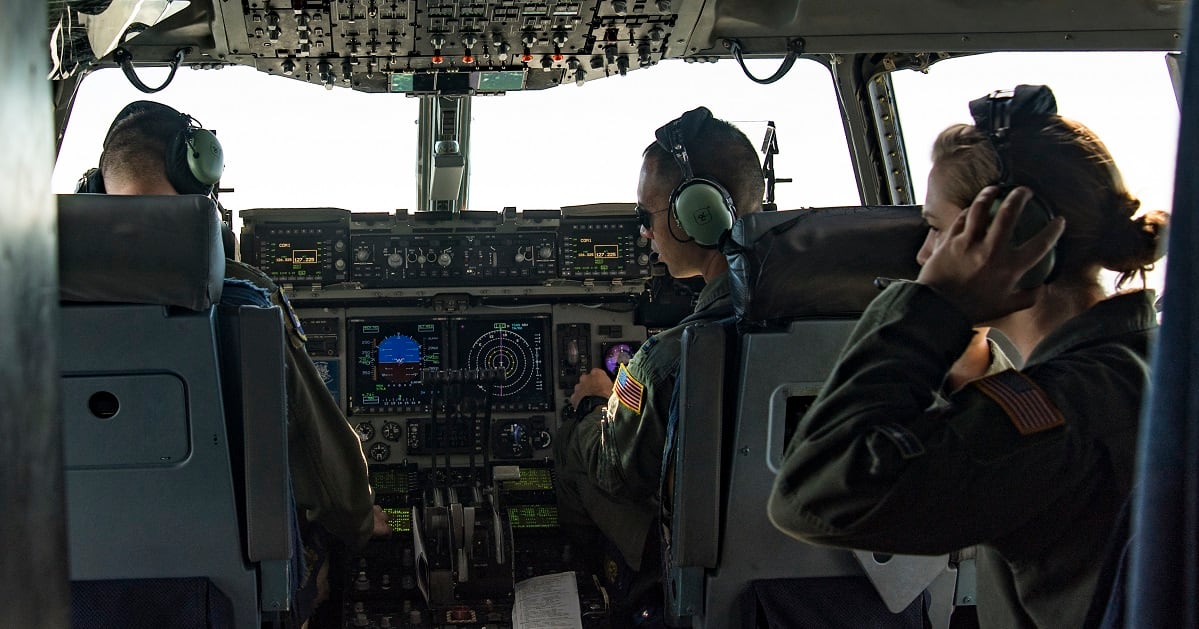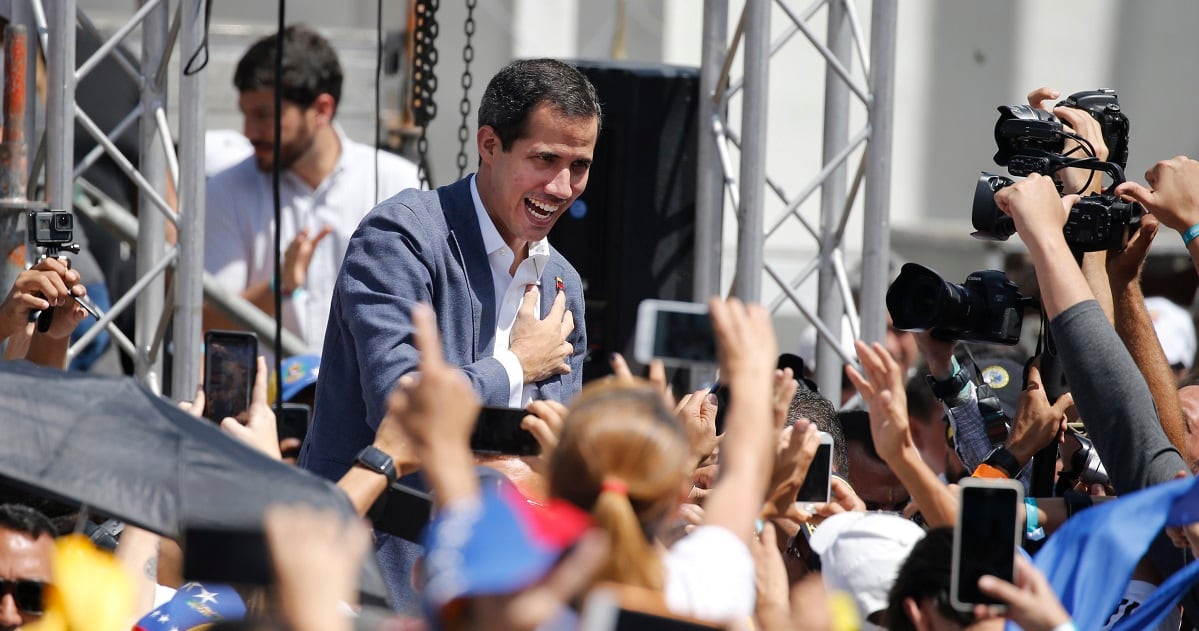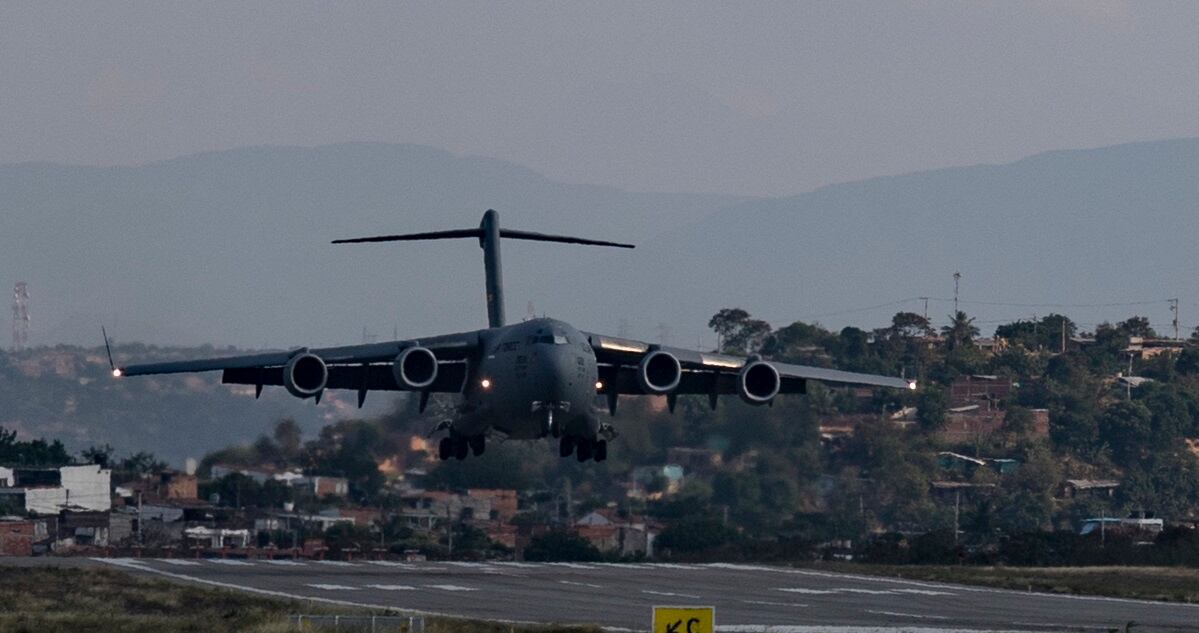CUCUTA, Colombia — The U.S. Air Force airlifted tons of aid to a Colombian town on the Venezuelan border Saturday as part of an effort to both help the Venezuelan people during their humanitarian and political crisis and undermine socialist President Nicolas Maduro.
Three C-17 Globemaster III cargo aircraft from Joint Base McGuire-Dix-Lakehurst, N.J., and Joint Base Charleston, S.C., delivered humanitarian aid to Cucuta, Columbia. The cargo planes took off from Homestead Air Reserve Base in Florida.
“United States Air Force humanitarian aid missions are the most meaningful missions that we fly,” Capt. Susan Jennie, a C-17 pilot with the 6th Airlift Squadron at McGuire, said in an Air Force news release. “The opportunity to fly these kinds of missions was my biggest motivation to train and fly on the C-17. To be able to help out and bring aid to those in need, when needed, is one of the most rewarding opportunities I’ve been presented in my life and career.”
That border city, swollen by a flood of migrants from Venezuela, is a collection point for aid that’s supposed to be distributed by supporters of Juan Guaido, the congressional leader who is recognized by the U.S. and many other nations as Venezuela’s legitimate president. He has called for the aid.
"This wasn't the first, and it won't be the last," said USAID Administrator Mark Green, standing on the tarmac in Cucuta at a ceremony to receive the aid. "More is on the way."
Commercial planes had been used for earlier shipments of aid, which is aimed at dramatizing the economic crisis — including hyperinflation and shortages of food and medicine — gripping Venezuela. Critics say last year’s re-election was fraudulent, making Maduro’s second term illegal.

"We are saving lives with these airplanes," said Lestor Toledo, an exiled politician who is coordinating the international aid effort for Guaido.
“This whole of government response is a demonstration of the U.S. commitment to the Venezuelan people,” said Col. Armando Hernandez, deputy public affairs chief, United States Southern Command.
“The U.S. military has a long history of supporting USAID-led aid missions and working with international relief organizations to provide aid to people impacted by life-threatening crises and disasters,” Hernandez added.
Maduro has been using the military, which remains loyal, to help him block the aid from entering Venezuela, describing it as "crumbs" from a U.S. government whose restrictions have stripped his administration of control over many of its most valuable assets.
"They hang us, steal our money and then say 'here, grab these crumbs' and make a global show out of it," Maduro told The Associated Press on Thursday. "With dignity we say 'No to the global show.' Whoever wants to help Venezuela is welcome, but we have enough capacity to pay for everything that we need."
His vice president has alleged, without evidence, that the aid packages are contaminated. Green on Saturday called the allegations "absurd."
Saturday's 180-ton shipment includes high-energy food products or hygiene kids of soap, toothpaste and other goods for more than 25,000 people.
Guaido spoke to a crowd of supporters gathered in eastern Caracas on Saturday and vowed to form caravans of activists to reach the border and bring in aid on Jan. 23. He also called for people to gather in cities across the country to receive the aid — and called for the armed forces to allow it into the country.
In the crowd was Anibrez Peroza, a 40-year-old nurse, who said she was ready if necessary to go to Cucuta in a caravan to bring in the aid.

“We have to do something to save so many people who are suffering and dying for lack of medicine,” she said. Peroza wept as she described a dehydrated child dying in her arms for lack of a catheter to rehydrate him.
The U.S. and widespread European recognition of Guaido complicates Maduro's efforts to find funds to keep his government, and its own food programs, running.
The U.S. has placed Venezuela's U.S. assets, including oil company Citgo, under Guaido's control and bans financial transactions by Maduro-controlled entities. Scores of Venezuelan officials also face personal financial sanctions in the United States.
Gisela Salomon reported from Homestead Air Reserve Base in Florida, and Fabiola Sanchez reported from Caracas, Venezuela.





